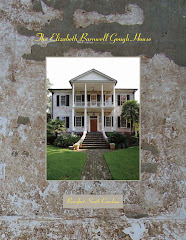
Medical practices in the mid-19th c. were still relatively primitive. With no understanding of the causes of infection or disease, hospitals were as deadly as the battlefield. Surgeons routinely operated with unwashed hands, garments soiled from previous patients and tools that had been given only a cursory cleaning by rinsing in the same bucket of water throughout the day. When available, ether, chloroform or whiskey were used as anesthetics. Frequently, though, even whiskey was unavailable and the patient had to endure the unabated pain of surgery.
Diarrhea or dysentery, the disease that killed the greatest numbers in the war, was treated typically with opium, copper sulfate, lead acetate, aromatic sulfuric acid, oil of turpentine, Epsom salts, castor oil, ipecac, sulfate of magnesia or mercurious chloride called calomel. Some were outright poisons. Others where administered with disastrous effects. A chronic lack of the medical supplies may have actually helped the survival rate at Hospital #10.
Amputations were routine. Often, piles of amputated limbs accumulated as overworked surgeons struggled to save the lives of soldiers shattered by two introductions in Civil War weaponry. The .58 caliber minié ball and canon loaded with canister shot both contributed to the war’s horrific numbers of dead and shattered or severed limbs.Statistics show that of those who had a shattered limb amputated, one in four would later die, most likely from infection – what was then called “surgical fever” – the primary killer of amputees.
So common was infection and so limited was medical knowledge that doctors at the time considered the symptoms of infection a natural, healthy sign of healing, even calling the symptoms “laudable pus.”
Gangrene was as little understood as dysentery. Stumps of amputees were routinely treated with such caustic chemicals or irritants as nitric acid and turpentine.
Please note that the material in this blog is copyrighted. It is not to be reproduced without my specific written permission.
.jpg)
